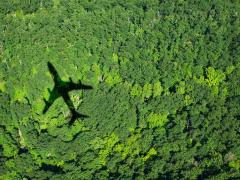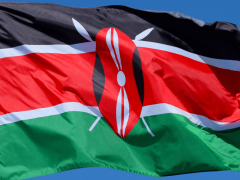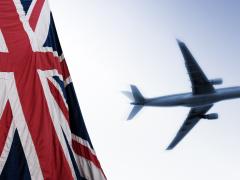The top destination for travellers from South Africa is the United Kingdom, while the top two African destinations are Mauritius and Zanzibar. Thailand is the most popular option for South Africans travelling to Asia.
This was revealed in Bryte Insurance’s inaugural Bryte Travel Index 2022, which leverages data to provide unique insights into the international travel preferences of South African travellers and the travel-related risks faced. Through the index, Bryte shares some examples of risk incidents in recent years, with single policyholder incidents costing millions of rands.
“We maintain that travel should be a celebration – but, as a trusted partner to thousands of travellers each year, we wanted to paint a realistic picture of travel-related exposures and provide helpful information that helps readers plan for a safer, hassle-free holiday,” says Anrieth Symon, Head of Travel at Bryte.
The insights and trends-focused index provides an account of the pre- and post-COVID travel habits of South Africans, with a spotlight on the international and regional destinations that are among the most popular, how long people travel for, and other factors. It also focuses on the more serious realities of travel – the diversity of risks, what people claim for, and ways in which to manage risk.
Lost baggage remains one of the common reasons for claims, particularly for South Africans travelling to the United States. The indexattributes the heightened level of risk, in part, to the increased volume of domestic flights in foreign countries. For example, many choose to travel to multiple US states.
Italy is high on the list of the highest baggage claims. Bryte cautions travellers to especially keep an eye on their valuables when they travel to Rome.
“While travel volumes have risen over the past decade, increasingly, people are choosing to travel via key hubs like Dubai International Airport. More connecting flights, means a greater probability of baggage-related losses,” adds Symon.
“It’s advisable for business and leisure travellers to ensure they are sufficiently covered against possible losses but are carefully noting the terms of their travel insurance baggage benefit. The reality is policies generally have a maximum single-item cover limit, which can fall short of the value of high-priced goods. Expensive items – such as laptops, cameras, designer apparel, and even prototypes, or other high-value materials – need to be covered by the appropriate business/personal insurance policy.”
Medical emergencies are among the more unsettling and expensive realities when travelling overseas. Medical expenses account for the most claims by Bryte travellers, both in terms of volume and rand value.
For example, during a work trip in the Democratic Republic of the Congo recently, a Bryte traveller took ill and was taken to a local clinic where the patient tested positive for malaria and was found to have acute kidney and liver failure requiring emergency medical evacuation, which the travel insurance policy promptly provided for.
TheUS accounts for more than half (56%)of the value of all BryteInsurance’s medical claims. To illustrate the extent, a Bryte customer who suffered abdominal pain while in the US had to undergo diagnostic tests and surgery. The treatment cost, which included a hospital stay, came to a whopping R3,2m.
Not all medical incidents are life-threatening, but without prompt professional attention, they can put a real damper on a holiday. In unfamiliar terrain, the possibility of food poisoning will be in the back of many minds. Without appropriate cover, there is often a strong temptation to put off treatment to avoid incurring a considerable expense. That may mean missed opportunities to maximise each moment on a trip.
“Today, many of us have a renewed respect for the complexities of travel risk and the multitude of things that could go seriously wrong. South Africans remain intrepid travellers, but reassuringly – as the index demonstrates – we won’t hesitate to seek expert travel advice. As the global resurgence in the demand for travel increases, leveraging the expertise of travel consultants is highly advisable to ensure one has a realistic view of exposures, and proactive and reactive risk mitigation measures – giving travellers much-needed peace of mind,” concludes Symon.













